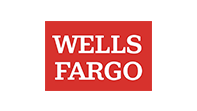Oweesta Corporation Receives $300,000 Grant to Support Native Communities
Grant from the Wells Fargo Foundation is part of $175 million commitment to assist communities impacted by COVID-19
LONGMONT, Colo., September 23, 2020 /3BL Media/ - Oweesta Corporation (Oweesta) today announced a $300,000 grant from the Wells Fargo Foundation, which will enable the Native Community Development Financial Institution (CDFI) intermediary to provide COVID-19 focused technical assistance, training, and other support services to Native Community Development Financial Institution (CDFI) housing lenders to support local housing efforts in Native communities throughout the country.
The grant for Oweesta is one of six grants awarded to CDFI’s that support housing and community development in rural communities with persistent poverty across the U.S.
According to Partners for Rural Transformation, of the 395 U.S. counties with persistent poverty, eight out of 10 are rural and the majority (60%) of people living in rural communities are people of color. These same distressed communities now grapple with the ongoing health and economic crises resulting from the COVID-19 pandemic.
“Oweesta Corporation appreciates Wells Fargo Foundation’s philanthropic support in addressing persistent poverty,” said Chrystel Cornelius, CEO, with Oweesta. “Our organization will use this support to continue our critical work in supporting Native communities with the provision of training and technical assistance, financing initiatives, and advocacy efforts; helping to ensure a strong economic recovery for the Native communities we serve.”
CDFIs each receiving $300,000 grants from the Wells Fargo Foundation include:
- cdcb in Texas,
- Communities Unlimited in Arkansas,
- Fahe in Kentucky,
- HOPE Credit Union and Enterprise Corporation in Mississippi, and
- Rural Community Assistance Corporation in California.
“The economic challenges from COVID-19 are putting a spotlight on the most vulnerable people in underserved communities being disproportionately affected by job losses, under-employment, and housing instability,” said Eileen Fitzgerald, head of Housing Affordability Philanthropy with the Wells Fargo Foundation. “These CDFIs play a crucial role in reducing housing poverty and homelessness, improving health outcomes, boosting economic mobility, supporting job creation and retention, and strengthening the economy.”
The Wells Fargo Foundation has a strategic focus on addressing housing affordability, small business growth, and financial health and includes a $1 billion philanthropic commitment to address housing affordability solutions by 2025. As part of its $175 million response to COVID-19, the Wells Fargo Foundation has provided more than 1,200 grants in support of nonprofits to help keep more than 100,000 homeowners and renters housed. The Wells Fargo Foundation efforts to address the housing affordability crisis includes expanding the capacity of housing counselors to respond to renters and homeowners, supporting nonprofits that provide affordable rental homes and services, and support for legal aid organizations to provide representation for renters at-risk of eviction.
Oweesta Corporation’s mission is to provide opportunities for Native people to develop financial assets and create wealth by assisting in the establishment of strong, permanent institutions and programs contributing to economic independence and strengthening sovereignty for all Native communities. Oweesta is the only existing Native CDFI (community development financial institution) intermediary offering financial products and development services exclusively to Native CDFIs and Native communities. Specifically, Oweesta provides training, technical assistance, investments, research, and policy advocacy to help Native communities develop an integrated range of asset-building products and services, including financial education and financial products. Native CDFIs provide Native communities the tools and capital support required for real and sustainable job creation, small business development, commercial real estate development, and affordable housing/home ownership, while also offering basic banking services and financial literacy training to “underbanked” Native American, Alaska Native, and Native Hawaiian communities who have been historically targeted by predatory lending practices.
###

